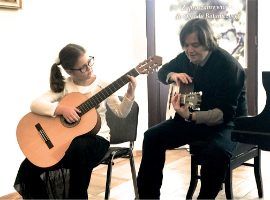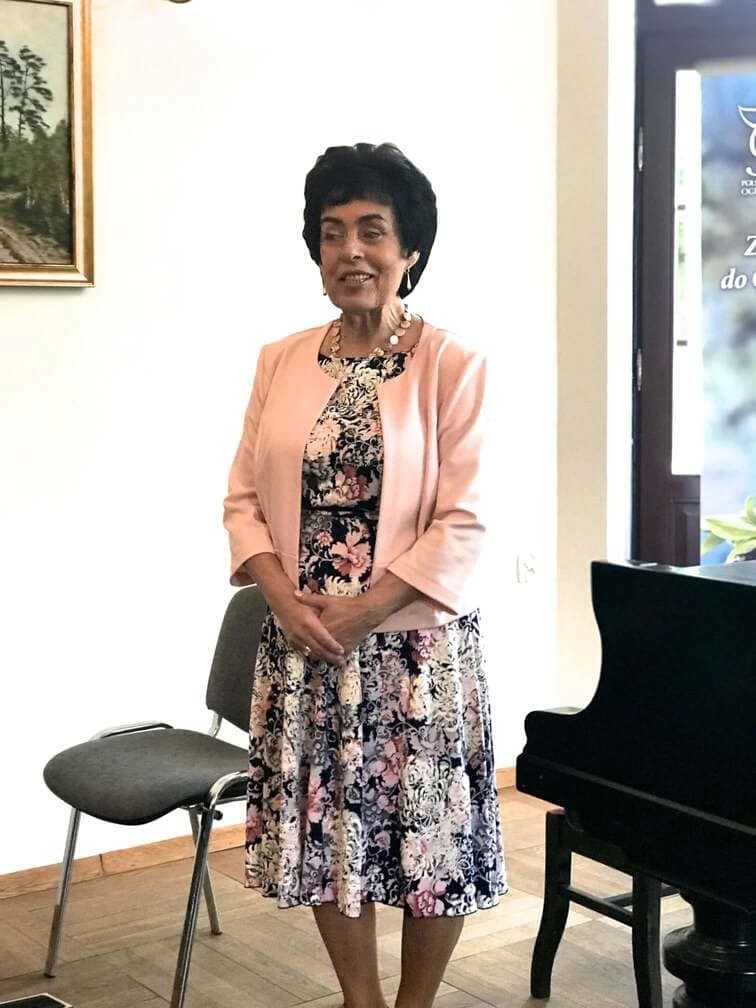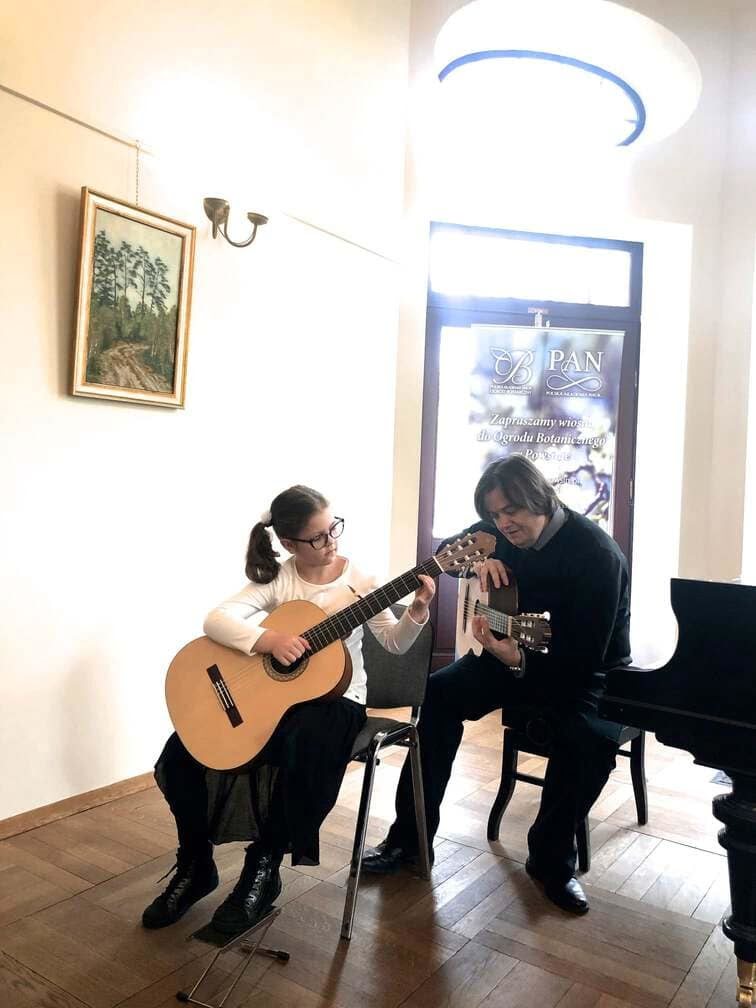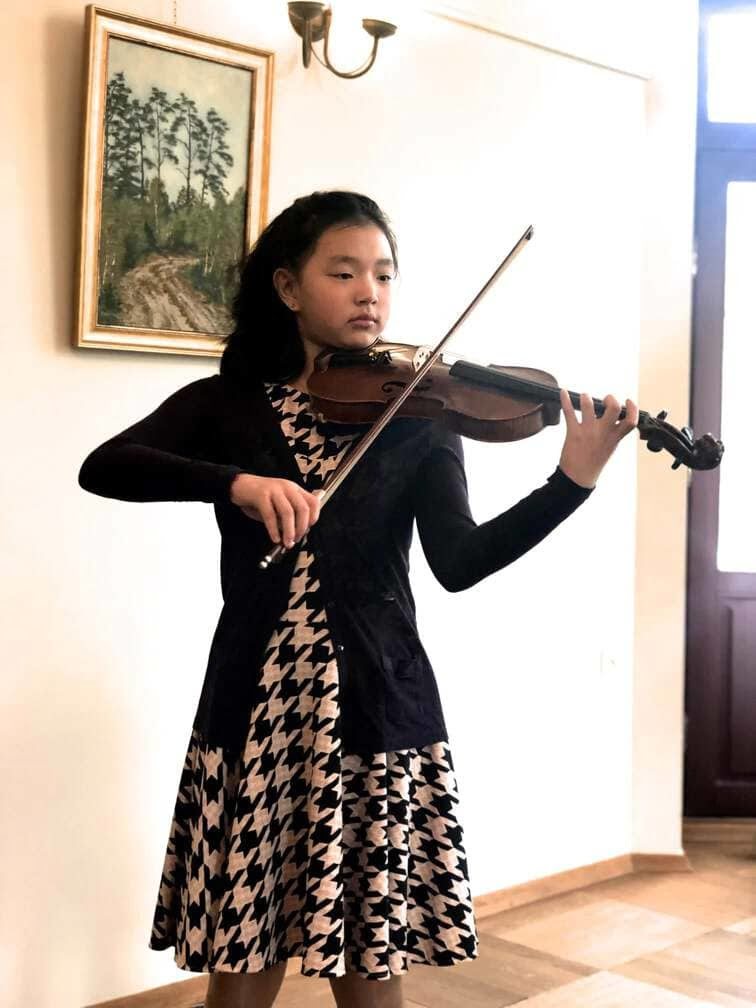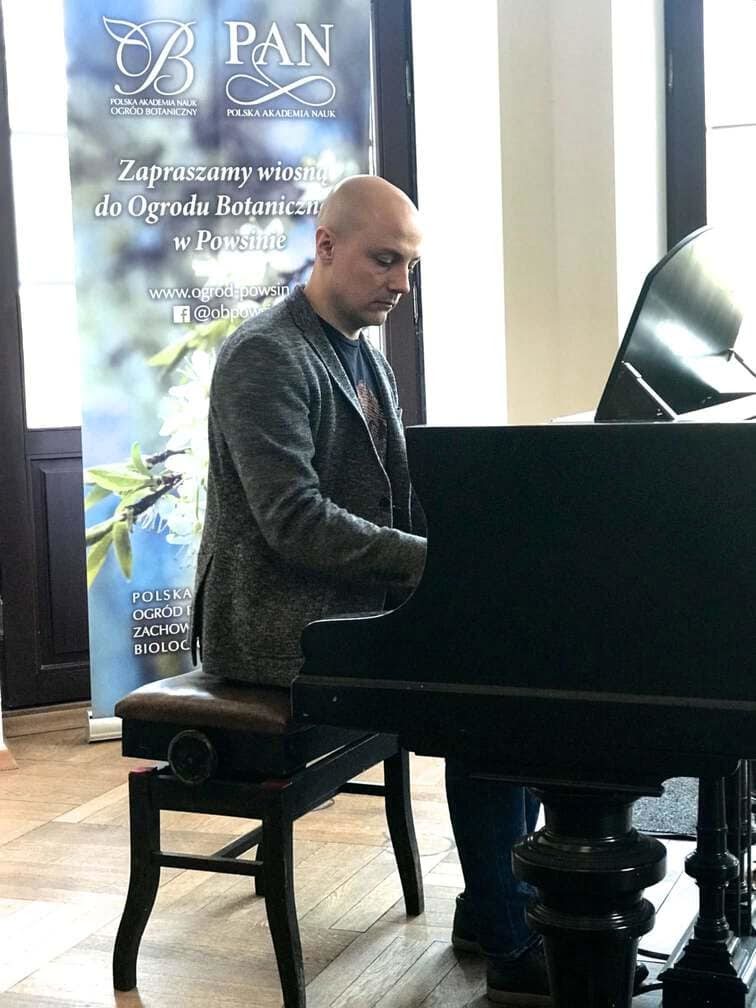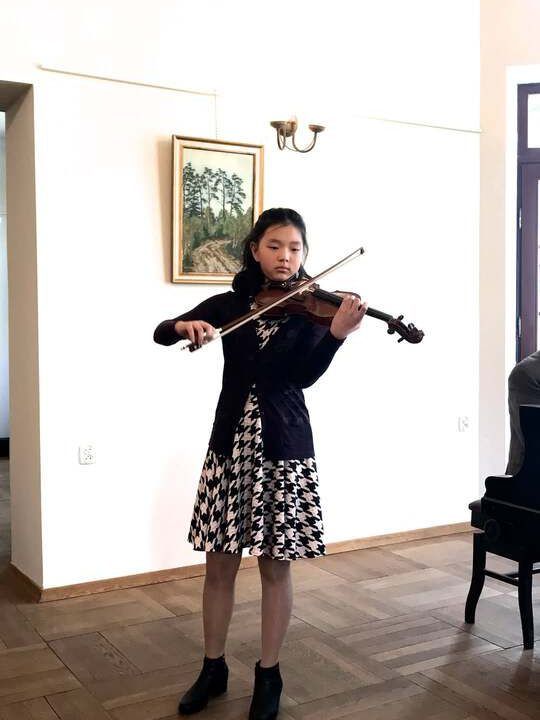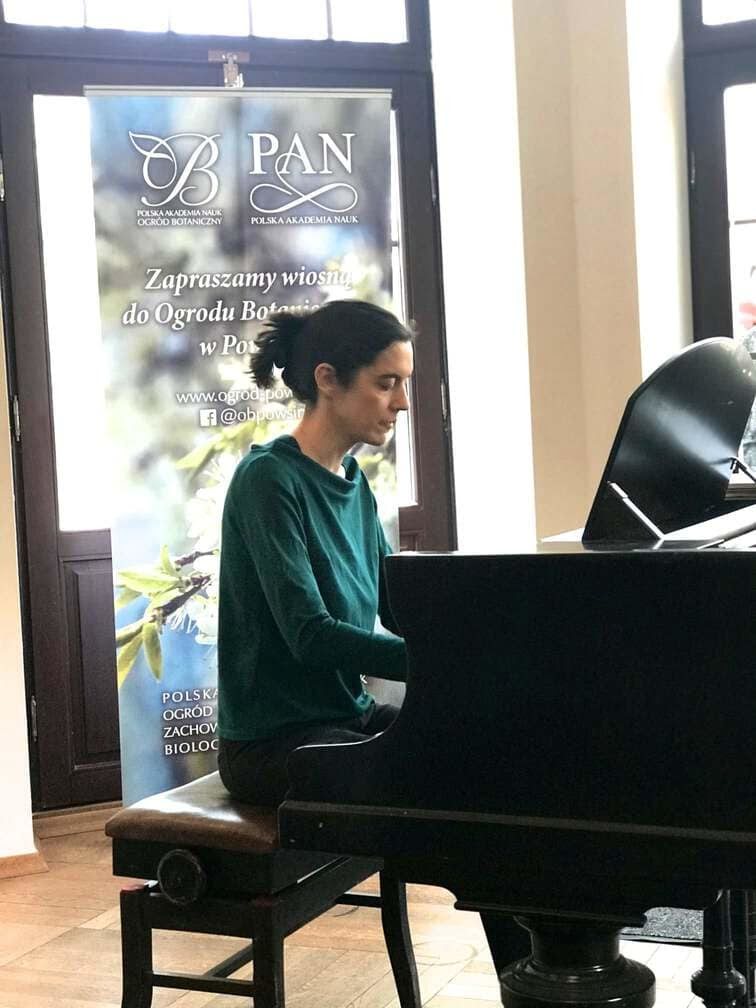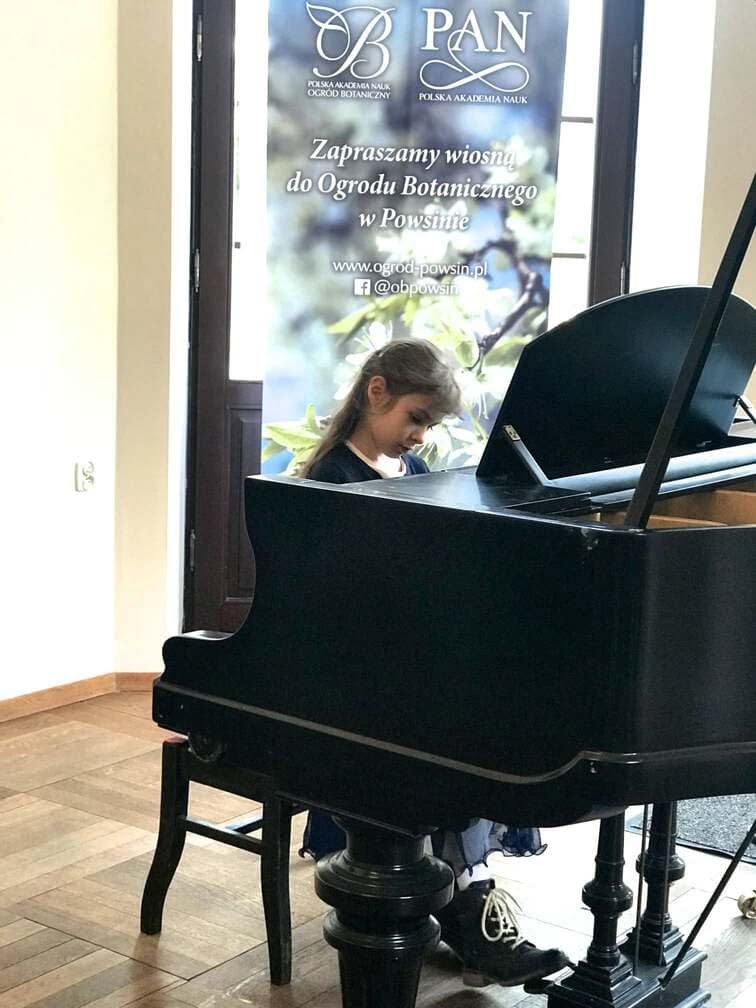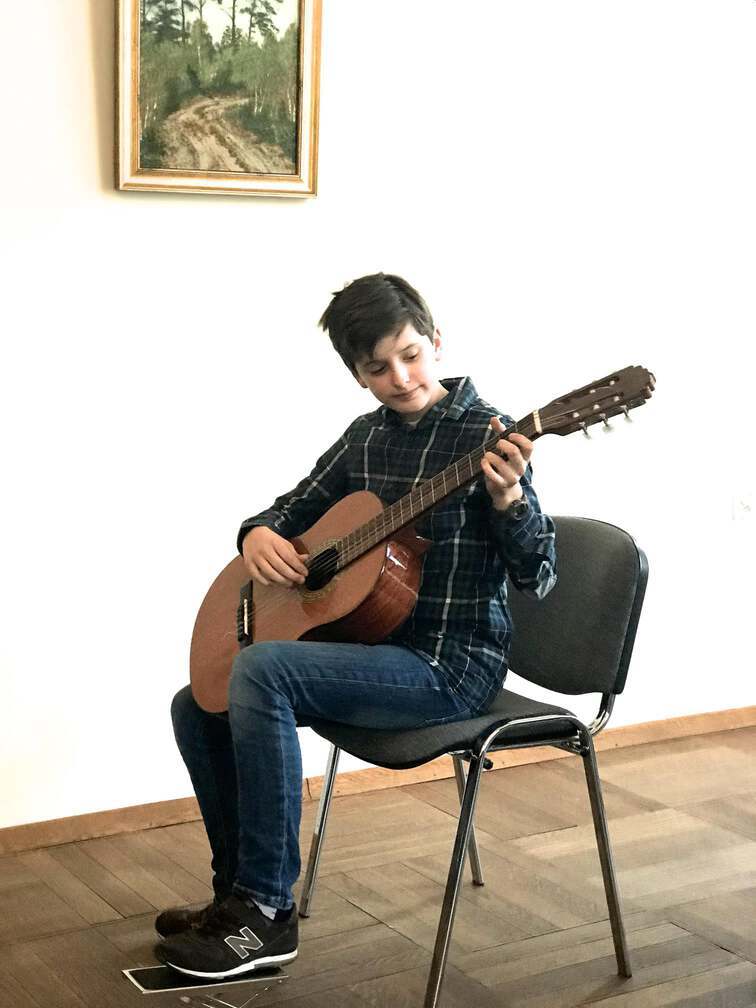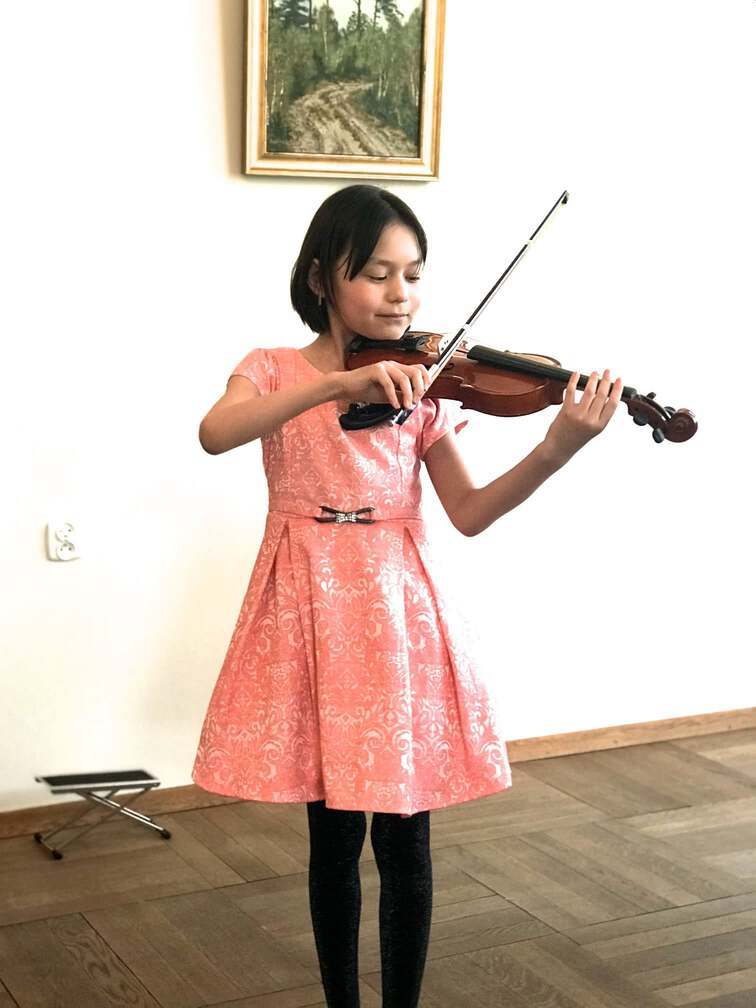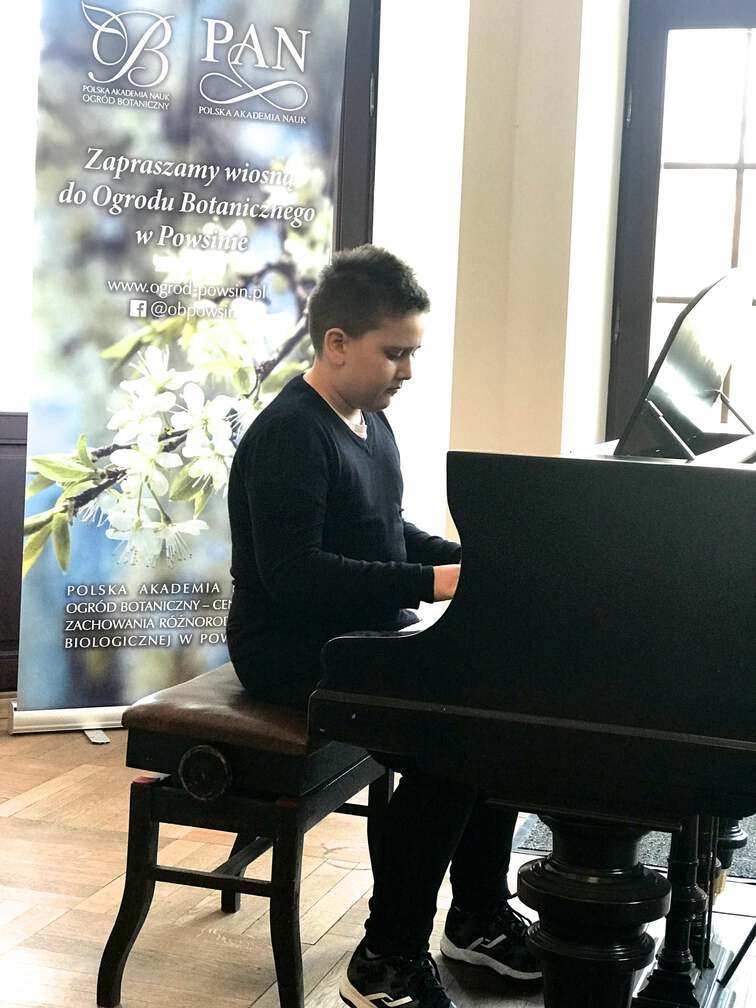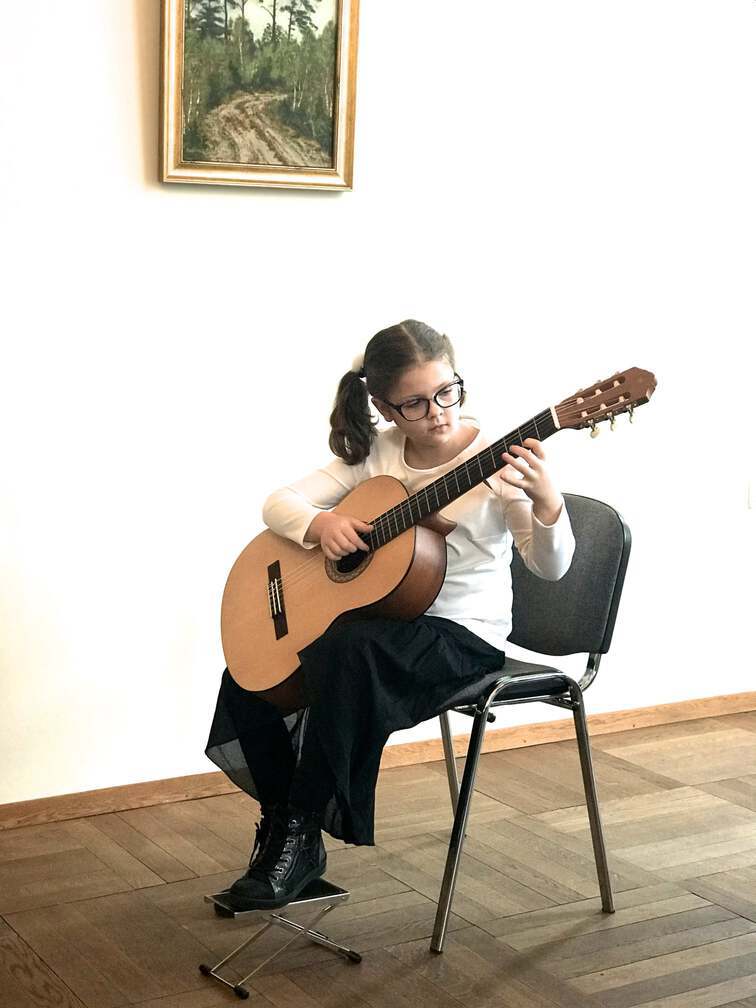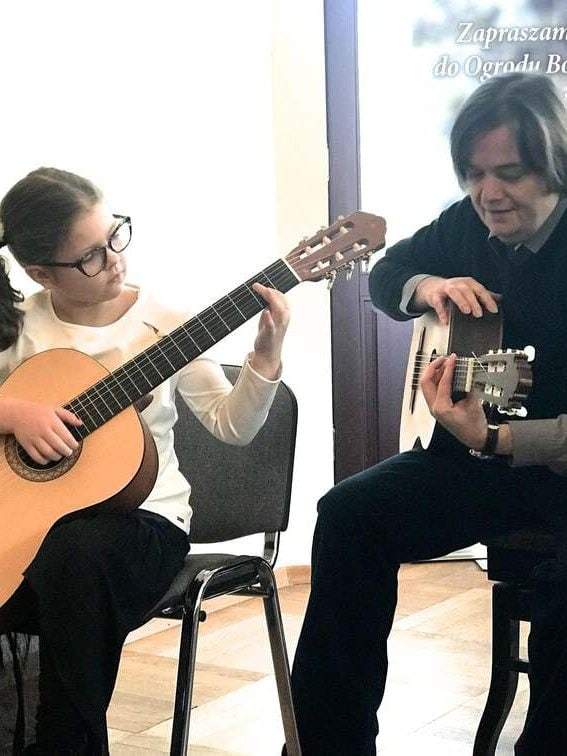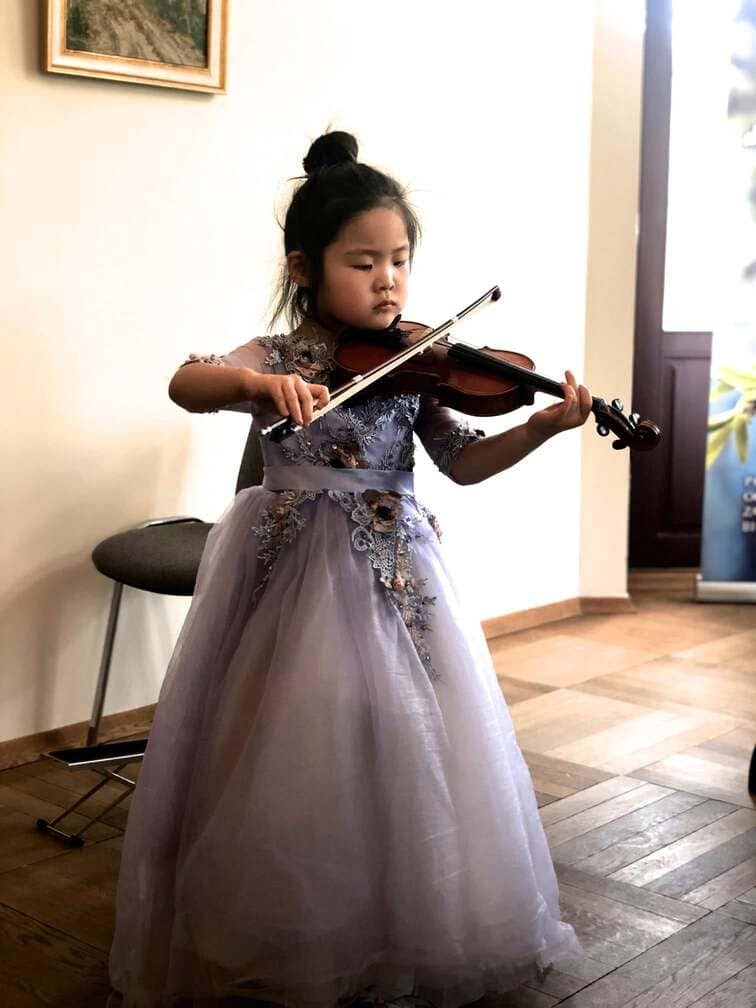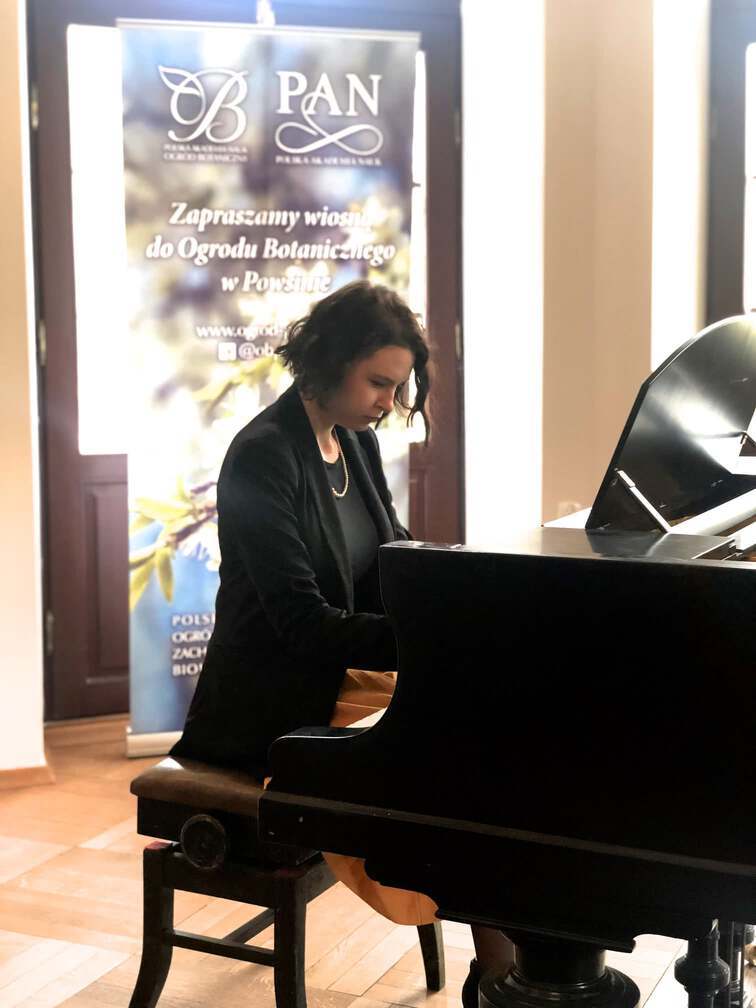Relation from student concert on 17th March 2019. This time in the Pre-Spring Sunday, March 17th 2019 we met at the friendly Fangor Mansion in the beautiful Botanic Garden of the Polish Academy of Sciences in Powsin, near Warsaw.
The program of the Concert was a real challenge for the young musicians, both for the beginners and for the more advanced young artists. They all showed their best so that their performance had a character of professional rendering of the musical works they presented.
Pre-Spring student concerts are musical performances that are typically held in the weeks or months leading up to the spring season. These concerts typically feature performances by students at a music school or other educational institution, and may be organized by the school or by individual students.
Pre-Spring student concerts are often a chance for students to showcase their skills and share their music with a larger audience. They may feature solo performances or ensemble pieces, and may include a variety of different musical styles. These concerts can be a great opportunity for students to build their confidence and gain experience performing in front of an audience.
Soloists representing Yuliya Levyuk Class of Piano
- Basia Sobka played “Marsz krasnoludków” (Dwarf’s March) by Miłosz Magin and „Walc kwiatów” (Flowers Waltz) by Piotr Tchaikovsky;
- Jaś Piwoński presented Sonatina in C-Major by Albert Biel and “Lazy Bear” by Vitalyi Neugasimov;
- Ola Kmiecik played “Chora lalka” (Ill Doll) by Piotr Tchaikovsky and „Walc A-dur” (Waltz A-Major) by Franz Schubert;
- Michał Kotas did Etude in C-Major by Carl Czerny;
- Mathilde d’Orgeval presented Invention No. 1 in C-Major by Johann Sebastian Bach and two works by Frederic Chopin: (1) Nocturn in c-Minor, op. poshum. And (2) Waltz Cis-mol No. 2 op. 64.
Soloists representing Krzysztof Komarnicki Class of Guitar
- Helenka Pilichowska played solo Maskarade by Peter Nutall and together with Prof. Krzysztof Komarnicki „Morskie opowieści” (Tales of the Sea);
- Edoardo Gallerani presented Andantino by Mateo Carcassi;
- Achille d’Orgeval played Gypsy Dance by John Whiteworth and Dance by Peter Nutall.
Soloists representing Zofia Zwolińska Class of Violin
- Avril Land presented the miniature Christmas Tree;
- Angeline Tworek played a song Up the Hill;
- Haruko Shimizu did a Ballad by Charles Dancla.
The Concert was highlighted by a rendition of the first part of the Spring Sonataby Ludwig van Beethoven played by Ella Bai.
Zofia Zwolińska, the Director of the UNISONO Music Academy expressed her warm gratitude to all the soloists for their progress and achievements, and to all the teachers for their successful work. Finally, Director Zofia Zwolińska invited all to the next concert to be played by the professors of the UNISONO Music Academy and will be open to all guests and visitors of the Botanic Garden of the Polish Academy of Sciences.
Concert featuring works of various composers in music history
To further our appreciation of classical music, we can learn about the works and lives of composers. This type of music education helps us to better understand classical music as we examine its history, context, and the contributions of individual composers. By studying these elements, we can gain a more thorough understanding of the creative process and the cultural and historical influences that have shaped classical music. Let’s see the silhouettes of composers whose creations you could hear in pre-spring concert.
Music of Franz Schubert
Franz Schubert was an Austrian composer and musician who was active in the early 19th century. He is considered one of the greatest composers in the history of classical music and is known for his contributions to the classical music repertoire, particularly his lieder (art songs) and chamber music.
Schubert was born in 1797 in Austria and began his musical career as a choirboy in the Imperial Court Chapel. He later studied music and eventually became a highly respected composer and pianist. His music is known for its technical demands and virtuosity, as well as its expressive melodies and beautiful harmonies.
Schubert’s music has had a lasting influence on classical music and has been widely performed and recorded by musicians around the world. He is considered an important composer of the 19th century and is recognized for his contributions to the development of lieder and chamber music. His music is known for its technical demands and virtuosity, as well as its expressive melodies and beautiful harmonies. He is considered an important composer of the 19th century and his music has had a lasting influence on classical music.
Music of Charles Dancla
Charles Dancla was a French violinist, composer, and conductor who was active in the 19th century. He was born in 1817 in Toulouse, France and began his musical career as a violinist in the Paris Opera. He later became a highly respected composer and conductor, and his music was widely performed and popular in Europe during his lifetime.
Dancla’s music is known for its technical demands and virtuosity, and he is considered an important composer of violin music. He is best known for his violin etudes and exercises, which are still widely used by violinists today to improve their technique and virtuosity. He also composed a number of other works for violin, including solo violin pieces, violin duets, and violin concertos.
Overall, Charles Dancla was a French violinist, composer, and conductor who was known for his technical and virtuosic music. He is considered an important composer of violin music and is best known for his violin etudes and exercises. His music was widely performed and popular in Europe during his lifetime.
Music of Carl Czerny
Carl Czerny was an Austrian composer, pianist, and music teacher who was active in the 19th century. He was born in 1791 in Vienna, Austria and began his musical career as a child prodigy, performing as a pianist and composing music at a young age. He later became a highly respected composer and music teacher, and his music was widely performed and popular during his lifetime.
Czerny is best known for his piano music, particularly his piano etudes and exercises, which are still widely used by pianists today to improve their technique and virtuosity. He also composed a number of other works for piano, including solo piano pieces, piano sonatas, and piano concertos. In addition to his piano music, Czerny also composed works for other instruments, including violin, cello, and voice.
This were one of the few composers featured in pre-spring concert.
Conclusion about March Pre-Spring Concert
The student concert on March 17th, 2019, held at Fangor Mansion in the Botanic Garden of the Polish Academy of Sciences in Powsin, near Warsaw, was a delightful event that took place on a Pre-Spring Sunday. The friendly atmosphere of the venue added to the overall charm of the concert.
The program for the concert was designed to challenge the young musicians, including both beginners and more advanced students. The students put forth their best efforts, aiming to deliver performances that showcased their dedication and talent. Despite their young age, they approached the musical works with professionalism, creating an impressive rendition of the pieces they presented.
Pre-Spring student concerts like this are typically organized to provide students with an opportunity to showcase their musical abilities. These concerts serve as a platform for young musicians to gain experience in performing in front of an audience and to further develop their skills. Such events are usually held in the weeks or months leading up to the spring season, offering a glimpse of the students’ progress and their passion for music.
Whether organized by the school or individual students, these student concerts play a crucial role in fostering a love for music and providing valuable performance opportunities. The concert held on March 17th, 2019, served as a testament to the dedication and talent of the young musicians, leaving a lasting impression on both the performers and the audience.
